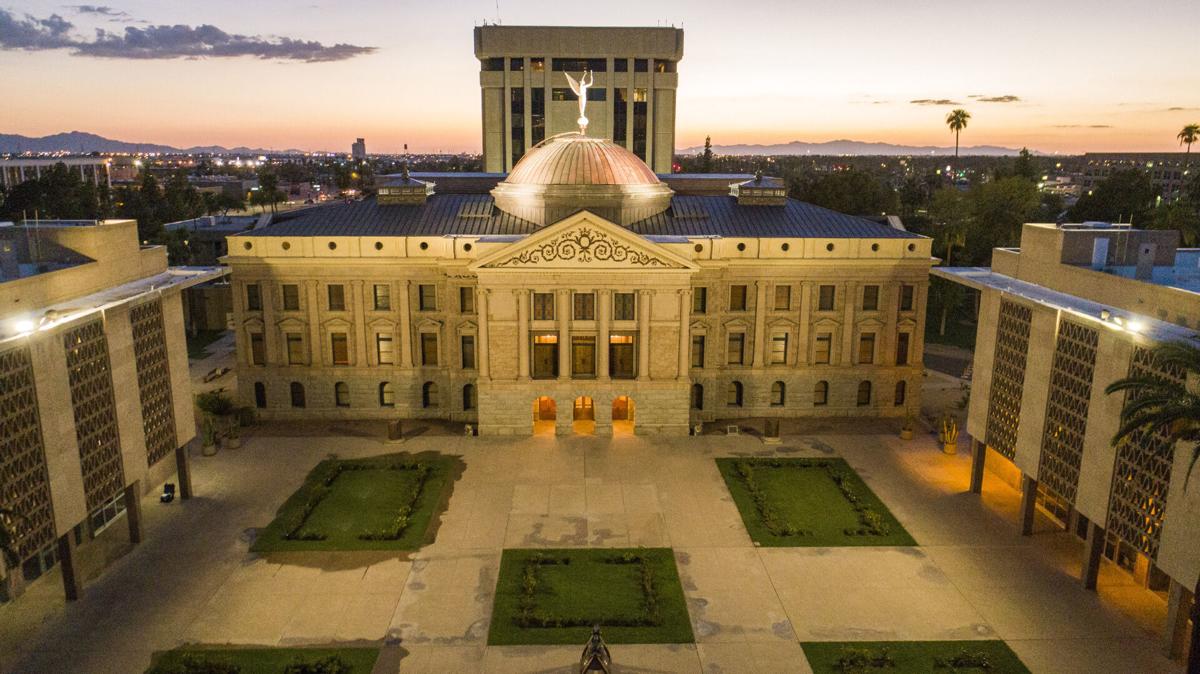PHOENIX — Republican lawmakers have once again blocked a vote on whether Arizona should ratify the federal Equal Rights Amendment.
But they did it in a way that allowed GOP lawmakers to avoid actually having to take a position on the measure.
The fight is over HCR 2030. As crafted, it would put Arizona on record in support of the measure, proposed by Congress in 1972, to add language to the U.S. Constitution to say “equality of rights under the law shall not be denied or abridged by the United States or any state on account of sex.”
It takes 38 states to ratify.
While it has reached that goal, some states have since rescinded their approval, with no court ruling on the validity of that action. And there is a question about whether a 1982 deadline for states to act is enforceable.
HCR 2030 would remove Arizona from the list of 12 states that have not supported ratification.
House Speaker Ben Toma, R-Peoria, assigned the measure to the House Judiciary Committee. But Rep. Quang Nguyen, the Prescott Valley Republican who chairs the panel, refused to give it a hearing.
Nguyen did not immediately respond to a request for comment about his decision.
So on Wednesday, Rep. Patty Contreras, D-Phoenix, made a motion to bring it directly to the floor, regardless of the lack of committee review.
It never got that far.
House Majority Leader Leo Biasiucci, R-Lake Havasu City, used a procedural move to substitute another motion, this one to instead go directly to floor debate on other issues.
That made a vote for his motion not, strictly speaking, against the Equal Rights Amendment, but instead one to go back to the regular order of business. And that, as in similar GOP motions going back more than a decade, sidestepped any need for lawmakers to actually go on record against the ERA.
Contreras, in arguing to allow a vote on the ERA, called the measure necessary.
“Women for too long have been treated as second-class citizens,” she said.
“As women, we face a gender pay gap,” Contreras said, saying that women earn only 77 cents against every dollar earned by white males. And she said the issues go beyond that, including sexual harassment in the workplace and pregnancy discrimination.
Contreras also said this hasn’t always been the partisan issue it has become. She also said noted that Sandra Day O’Connor, a state senator in the 1970s, supported the idea.
But O’Connor’s backing is less than clear.
When constituents wrote her in 1974 to support the measure she sent out a form letter.
“The Equal Rights Amendment recognizes the fundamental dignity and individuality of each human being and rests on the basic principle that sex should not be a factor in determining the legal rights of men or women,” she wrote at the time. “On the other hand, many sincere and genuine questions have been raised about the interpretation of the broad general language of the amendment.”
So O’Connor’s official position was she would support a measure to send ratification to the ballot for an “advisory vote” that would not be binding on the legislature. That never happened.
On Wednesday, House Majority Whip Teresa Martinez, R-Casa Grande, said she sees no need for a constitutional amendment.
“I believe that a woman should be looked at as a person, not a gender,” she said.
“As a woman, I appreciate giving birth, I appreciate being a mother, I appreciate my pro-life choices,” Martinez said. Foes of the measure have said in the past that they see the amendment as a back-door method of putting a right to abortion in the U.S. Constitution.
But Martinez said that, in her capacity as majority whip, her colleagues see her as a person.
“They look at me as equal to them,” she said.
“When the Republican Party looks at me, they don’t see a brown, poor woman,” Martinez said. “They see a mighty warrior for a conservative Republican cause.”
Weather cameras at the University of Arizona captured this time lapse of clouds and showers rolling into Tucson on Wednesday March 22. Video courtesy of UA Department of Hydrology and Atmospheric Sciences.






